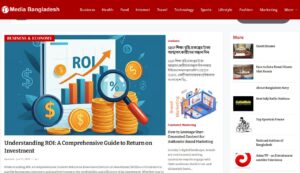I also skimmed through the ongoing debate surrounding Telecentre and ICT4D, Information Communication Technology for Development, in recent days, some of which were very intriguing. I appreciate the participation and exchange of views by several people who have done a justice to the ICT community by explaining their (BTN, Bangladesh Telecentre Network) position more clearly.
Dissemination of knowledge is indeed part of development, what we all are aiming for. I welcome Telecentre initiatives, but equally we are concerned our education front. I was haunted by this fact during my last visit to Bangladesh . To be successful in this movement and to derive actual benefit we need to raise our education standard and address this important issue side by side, which is unfortunately flowing in downward stream. I was shocked to see the state of primary education especially in villages, whereas it was expected to grow in manifold over the period because of activities of NGOs as well as government. Education is indeed the precondition of all those development work, which unfortunately not getting due attention vis a vis other initiatives. However, I feel any innovations like Call-centre should be encouraged as it has the huge potentiality to change our socio-economic condition; and without inspiration and support no innovation can flourish.
I also agree, ICT4D initiatives worldwide usually have strong promises but fewer outcomes. Although it has the huge potentiality to benefit and improving the economy of developing countries as well as to address many of their deep-rooted problems like efficiency, transparency and governance, it’s not free from controversy in the west as well. Its like every good thing has some negative effect. Lot of people including well known researchers like Richard Heeks are very cynical about its actual contribution, specially the way these are conducted in various countries. The result goes well below the superfluous expectation as many of these programmes fail to address some deeper contextual issues and complexities surrounding the ICT4D issue.
There is also a disagreement over how high a priority it should be given in relation to other development initiatives of the country. The problem with ICT is, you can’t see its output or contributions overnight like other tangible businesses or activities. To see its effect you may have to wait a bit longer, the result of which might appear in the form of a social change at the cost of some heavy initial investment, sacrifices and socio-political dilemmas.
It’s true that there is very little empirical evidence that ICT4D projects actually result in poverty alleviation but again it is difficult to show a simple cause and effect, since ICT is a multi purpose tool. However there are strong evidences in developed world, for example in Australia that ICT contributed to productivity significantly. Also there is a growing consensus amongst the researchers in this area that ICT provides an opportunity to reduce social and economic inequalities and support the creation of an accountable and transparent mechanism in the poorly run administration.
I agree that ICT4D can’t do a miracle and can’t solve the disparity between poor and rich so easily. It’s a big challenge with lot of risk. But what’s the remedy or alternative choice? We’re only left with an option to try our best to bridge this gap between information rich- and information poor, which is not only creating digital divide but also creating the economic divide in this knowledge based economy.
You have talked about farmers. I think we need a philosophical shift in our thought that the farmers need to change the farming technique and strategy with the changing circumstances, although these are very hard questions. They can’t expect the same return following the same method of 50 years back. Unfortunately that’s the reality of this age, we need to cope with.
Putting a negative nuance against all NGOs or any institutions possibly not a good idea as some of them really contributed to our society. I agree, some NGOs have drifted from their original mission abusing their mandate and exploited the poor people, for which many in Bangladesh became very critical about the NGO activities as a whole. We have to admit that absolute charity is also not always feasible. If some one has business ideas attached to a genuine development goal that should not be viewed negatively. A win-win situation for both should be okay. People need some kind of motivation or encouragement to do a noble task. For some it may be self-satisfaction, for some it may be recognition or for some it may be monitory incentive. But the main objective i.e. human capacity building and development should not be compromised. Exploitation in the name of ICT4D must not be tolerated at all, which not only unethical and a crime to humanity but also diminishes the prospect of its (ICT) flourishing.
Think about a scenario, when we decided to reject ICT based innovations in our country on the pretext that it would only serve the interest of western or corporate world. What will happen? The digital divide will increase and slowly we’ll go back to nomadic age away from civilisation, deprived from modern knowledge based society when rest of the world will ride over information superhighway. Unfortunately modern science, education, health, research and development these days are highly dependent on ICT, which we simply can’t deny as an inhabitant of this century.
I’m not sure to what extent it is true that the West is only looking for a business opportunity and to exploit the third world countries through ICT4D, as many of my experiences in research does not support this. Obviously the west has some advantages as well as obligation to promote this in the developing world. It is mostly few champions who usually take such initiatives and can see the bright light and prospect to change the fate of millions who are deprived of knowledge based society. One of the main interests of west often derives from their too much obsession with ICT in the West, its benefit and use where they tend to think ICT is possibly the springboard for development. What they miss often is local context, tradition and culture, which make it very complex and challenging task. In between, the business organisations or corporate world step in for a possible business opportunity or to expand their businesses, which I guess is pretty normal characteristics of any business organisation or corporate world per se. Only caution is that the people leading this social change need to be careful so that the corporate world cannot transform this into a complete business project missing the actual objective.
To conclude, I’d say ICT is a revolution of this century, like the industrial revolution, transistor revolution in previous centuries. The wave of this revolution will automatically grapple the whole world like a Tsunami, today or tomorrow. Whether we accept it or not, it doesn’t matter. One can’t afford to resist this for longer, if he wants to survive in the new Information Age. The only difference would be, some would be early adopter and some late adopter, which will determine lead and lag, rich and poor. This is where the human competition comes in. ICT is becoming a bare necessity to survive, to grow and to keep pace with the rest of the world in progress and in prosperity. Any delay will put one at risk of being further marginalised in the world. ICT today is not only a matter of choice; it is the question of our existence in this information age.




